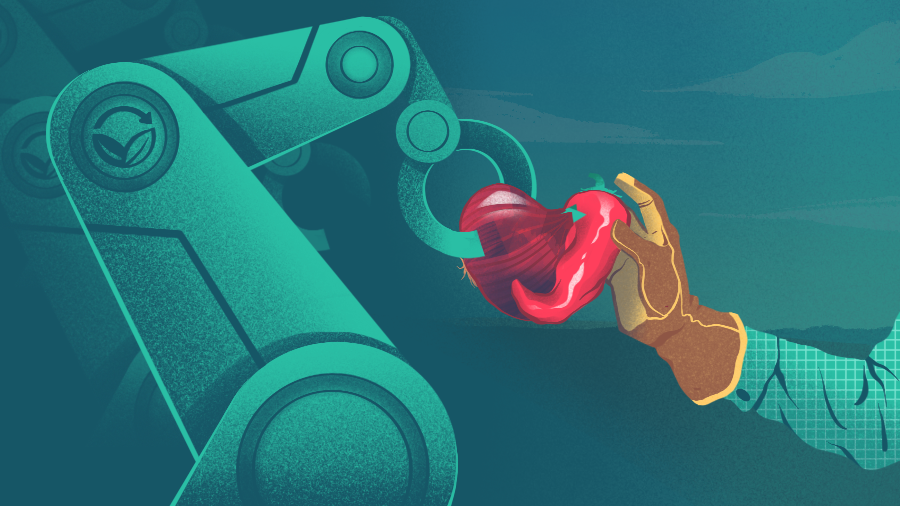The problem of food waste has attracted more attention in recent years, and rightfully so.
By now, the rough stats are pretty familiar. Globally, approximately 30% of all food is lost or wasted. In the U.S., meanwhile, it’s estimated that up to 40% of all food produced goes uneaten.
It’s a hot-button environmental issue, as well as a humanitarian one. The carbon footprint of all that wasted food is monumental. And, tragically, there are millions worldwide who don’t have enough food, despite an abundant global supply.
Search less. Close more.
Grow your revenue with all-in-one prospecting solutions powered by the leader in private-company data.
Startup founders and investors have been following the numbers too. This has contributed to a large pipeline of companies working on ways to reduce food waste.
It’s a heavily funded group. A Crunchbase sampling of companies with business models tied to cutting food waste shows $1.85 billion in investment to date for those who raised in the past couple years. We put together a selection of 25 of the most interesting and highly capitalized below:
Broadly, we identified three major themes in food waste investment. These include technologies to make fresh food last longer, better systems for redistributing surplus or suboptimal foods, and processes for turning food waste into new products.
Eat older groceries
Let’s start with longer-lasting produce.
Among foodies and healthy eating fans, fresh has long been the leading mantra. It’s all about the joy of peaches and strawberries just trucked in from the farm, a loaf of sourdough still hot from the oven, just-picked veggies from the summer garden …
If you’re getting hungry reading the above, then allow me to interject that this is not where food waste reduction-focused startups are taking us. Rather, funded companies envision a world where produce and other perishables can stay on the shelf longer and still taste OK.
Apeel Sciences, the most heavily funded company on our list, is a prime example. The Goleta, California-based company, which has raised $640 million to date, makes a plant-based coating that helps produce stay fresh longer.
An unwrapped English cucumber treated with Apeel, for instance, can stay crisp and unwrinkled for nine days. A lime is still juicy and good after a month, while an organic apple can stay crunchy for a similar duration.
Chicago-based Hazel Technologies has raised $88 million for packets that can be tossed in a box of produce to extend shelf life. Ryp Labs, of Kirkland, Washington, meanwhile, markets a product called StixFresh that can be applied to fruits to slow down over-ripening and spoilage. The company raised $7.3 million in recent funding, according to a July securities filing.
Get rejected foods to those who want them
In addition to enabling food to last longer, startups are also working on ways to more efficiently transfer rejected items to businesses and consumers who could still make use of them.
At a micro level, this approach reminds me of my tomato-hating best friend in high school. She would always pick tomato slices off her sandwich and offer them to tablemates, to no avail. In retrospect, it’s clear this was a well-meaning but fruitless strategy to avoid food waste.
But what if, on a macro scale, there was a way to make this kind of exchange work? What if one could take the gently bruised fruits, old-but-not-moldy baked goods, and other items rejected by distributors, stores and restaurants, and get them to people willing to set aside their flaws?
Turns out, a sizable number of funded companies are working on this general idea. The most prominent is Misfits Market, a direct-to-consumer seller of surplus premium groceries and organic produce that’s too small, large or oddly shaped for retailers. The Philly-area startup has raised over $525 million to date, including a $225 million SoftBank Vision Fund-led round a year ago.
In Europe, Stockholm-based Matsmart has raised over $140 million to scale its business of selling discounted groceries and other items that are surplus, improperly packaged or just past their best-before dates. Popular items this week included rye crackers, bulk spaghetti and olive oil.
Another good-sized funding recipient is U.K.-based Too Good To Go, which offers an app for restaurants and other food purveyors to sell “Magic Bags” to consumers containing foods that are left over or reaching their expiration date.
Turn old or rejected food into new products
Another logical use for surplus or past-its-prime food is to find some purpose for it other than feeding it to a human.
Industrial goods is one option. To this end, TripleW, an Israeli startup, produces what it describes as “high value biomaterials” from food waste, including lactic acid that can be used to make bioplastics. Over seven years of operation, the company has raised over $17 million in grant and venture funding.
One could also make food for other creatures. That’s the idea behind Bangalore-based Loopworm, which just raised $3.4 million in a seed round co-led by Omnivore and WaterBridge Ventures. The company is looking to upcycle food waste into protein-rich animal feed through insect-breeding.
More complicated than just eating what’s on your plate
All these high-tech approaches to reducing food waste are a far cry from the old-fashioned methods many of us grew up with. These included admonishments to eat all the broccoli, guilt trips about hungry people in the world, and threats of withholding dessert.
Certainly, these old standbys which are still in use today, had a certain effectiveness. But from a broader perspective, so much food waste occurs far away from our plates, at distribution centers, grocery stores, restaurants and elsewhere. To really make a dent in the problem, we’ll need innovators with truly scalable approaches.
It’s encouraging to see startups are on the case. This leaves the rest of us with more manageable ways to contribute, like finishing our broccoli.
Illustration: Dom Guzman

Stay up to date with recent funding rounds, acquisitions, and more with the Crunchbase Daily.












67.1K Followers